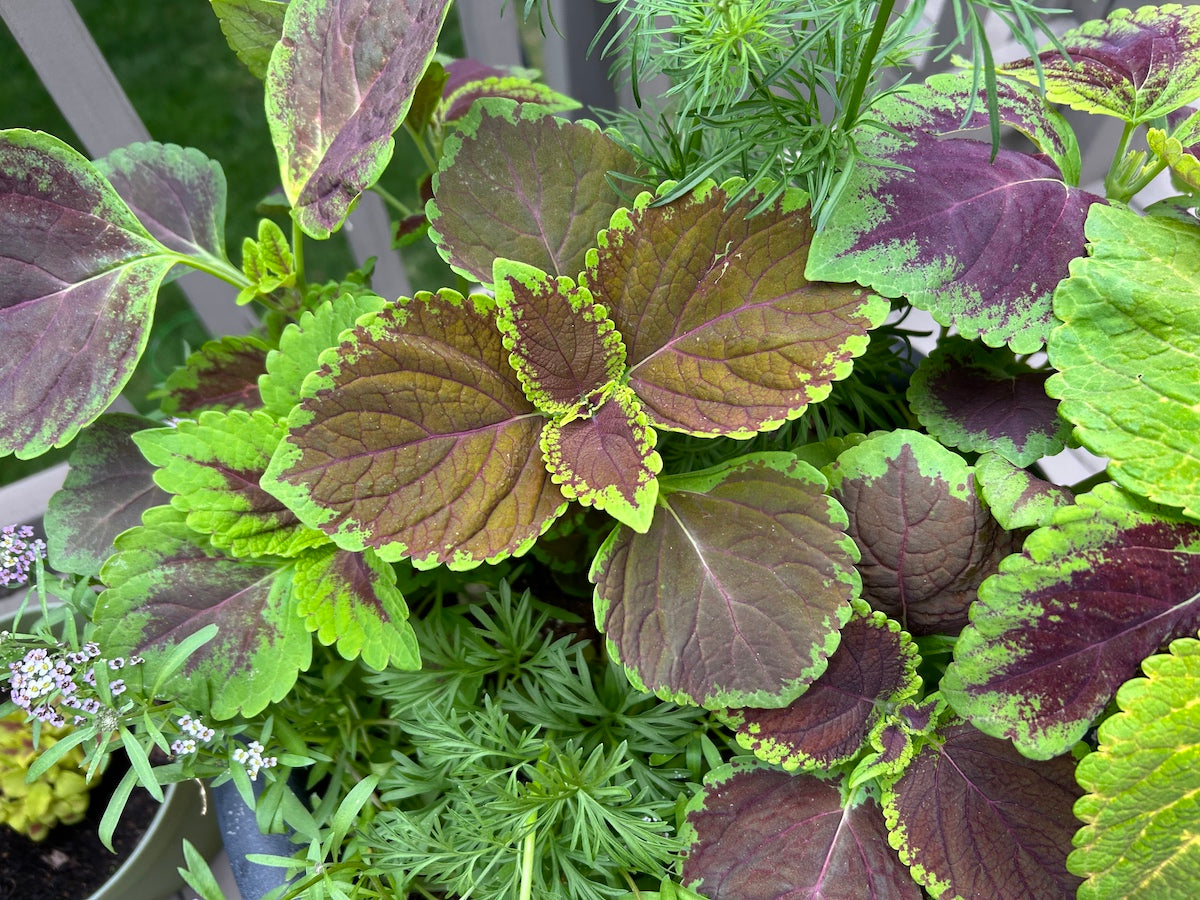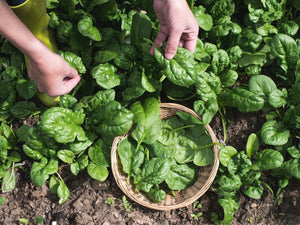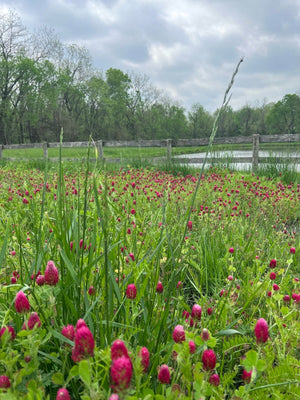How to Grow Coleus From Seed for a Vibrant Flower Bed Filler
ColeusColeus is a beautiful plant that can add a pop of color to any garden or indoor space. With its uniquely colored leaves in shades of pink, lime green, and burgundy, it's no wonder it's a popular choice for many gardeners. As a member of the mint family, coleus is easy to grow from seed and can reach heights up to 3 feet. Whether you're looking to add some texture to your flower beds or brighten up your indoor space, growing coleus from seed is a great way to get started.

Quck Links
How to Grow Coleus From Seed
Coleus is a native in tropical areas. It thrives in warm, humid conditions and is considered a tender annual since it is frost sensitive. Because of its low light requirements, it also makes an excellent houseplant. If you grow coleus in containers, it is easy to bring indoors when the weather gets into the 50s.

Tips for fail-proof coleus seed germination
Growing coleus from seed is easy to do. These seeds are tiny and need light and warmth to germinate.
Sow coleus seeds indoors 8-12 weeks before the last spring frost.
Coleus seeds are very tiny. Sprinkle them lightly to avoid having too many planted close together. You can use a damp toothpick to pick them up one at a time.
Coleus needs light to germinate; gently press seeds into the soil or growing medium, and do not cover with more soil.
Keep seeds moist until they start sprouting, which will take 10 to 14 days. A humidity dome helps to keep the moisture in until the seeds sprout.
Use a heating pad if needed to keep the soil temperature at 70 to 75ºF.
Once the seeds have sprouted, keep the soil moist by watering from the bottom.
Use grow lights or put seedlings in a sunny window.
Thin out your coleus seedlings once they have sprouted. They will grow faster if the roots have less competition.
When the seedlings have at least 2 sets of true leaves, you can start hardening them off for outdoor transplanting.
Wait until all danger of frost has passed and temperatures are consistently above 60ºF before planting outdoors.
How to Grow Coleus Plants Outdoors
Coleus comes in many colors and color combinations and looks beautiful in both containers and flower gardens. Coleus grown from seed prefers dappled sun to half shade. Too much sun will fade the bright colors and bleach the leaves. Coleus will wilt in the hot afternoon sun, so be sure to keep it well watered. As long as the soil stays moist, the leaves will spring back when the sun goes down.
Watering Coleus
Well-draining soil is important for coleus so that the roots don’t rot.
Growing coleus in containers will mean more frequent watering than coleus grown in a ground bed. For container-grown coleus water daily, sometimes twice a day, depending on how quickly it gets hot or dries out. Make sure the pot has good drainage.
When growing coleus in the ground, water whenever the top 1 or 2 inches is dry. Coleus leaves will dry out and turn brown when it is not getting enough water.
Fertilizing Coleus
Fertilizer is not necessary when growing coleus in fertile garden soil. But a balanced fertilizer applied once a month can produce bigger plants.
Container-grown coleus will need more frequent fertilizing as frequent watering can deplete the soil of nutrients.
Always use a balanced fertilizer for coleus. One with more phosphorus will result in a leggy plant.
Coleus Flowers and Seeds
When grown from seed, coleus can produce white or blue flowers. However, once it goes to seed, the plant will not continue to grow. For big, bushy coleus plants, pinch off the top growth to prevent it from going to seed. If you do want your coleus to go to seed, you can let it flower and collect the seeds. Coleus will cross breed easily, so you may get a different variation on your next planting.
Tips for growing coleus indoors
Coleus makes an excellent container plant and can be grown indoors. Regular indoor temperatures are perfect for coleus, but it will benefit from additional humidity. Coleus doesn’t require much light and can thrive on a sunny window sill.
When growing coleus indoors in front of a window, rotate your plants occasionally so they get even light exposure.
Give indoor coleus plants regular watering and fertilizing for optimum growth. Use a balanced plant fertilizer.
Coleus prefers a humid climate. When growing indoors, you can increase humidity around the plant by setting the pot on a tray of rocks and adding water to the tray.
Solutions for coleus pests and diseases
Coleus is not prone to any specific pests, but like most plants, aphids and whiteflies can be a problem.
Fungus and root rot are diseases that are easy to avoid with well-draining soil and careful watering.

Coleus FAQs
Can you grow coleus from cuttings?
Coleus can be propagated from cuttings. Cut off a 4 to 6-inch stem from the top of the coleus plant. Remove leaves from the bottom of the cutting. Place it in water up to the first leaves. Roots will form on the cut stem. Once the roots are growing, this new coleus plant can be planted in soil.
Does coleus have flowers?
Coleus grown from seed can have flowers. They are either white or blue, depending on the variety. These flowers will produce seeds that can be planted.

Coleus growing tips:
Days to germination: 10-14
Planting depth: 1/16"
Plant Spacing: 10-12”
Soil Temperature: 70-75ºF
Light Requirements: Partial Shade
6.0 to 7.0 soil pH
Coleus doesn’t tolerate cold at all and will die from frost.
Prefers moist soil, but not waterlogged, as that will cause root rot.
Pinching off top growth will result in bushier side growth.
Coleus can be propagated from cuttings.

Growing coleus from seed is a simple and cost-effective way to add a pop of color to your garden. With just one packet of seeds, you can grow multiple plants to fill up your flower beds or containers. Coleus is a low-maintenance plant that is perfect for beginners. Its vibrant leaves come in a variety of colors and patterns, making it a delightful addition to any garden. Give it a try and enjoy the beauty it brings to your outdoor space!
1 comment
Popular Posts
-

How to Grow the Sweetest Spinach Leaves You'll Ever Taste
-

The Beautiful Benefits of Using Crimson Clover as a Cover Crop






Hello, very informative website. Thanks for sharing
Leave a comment